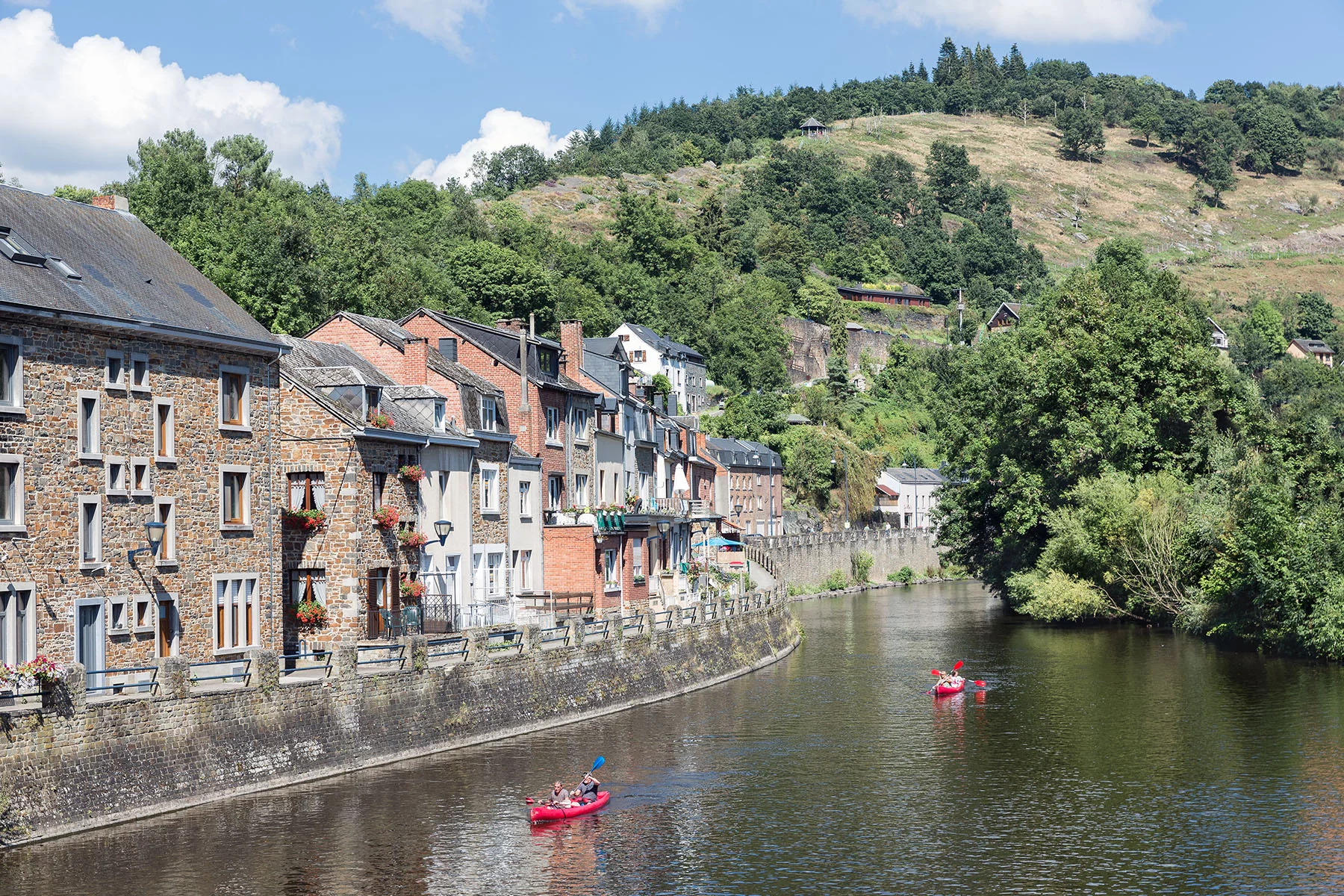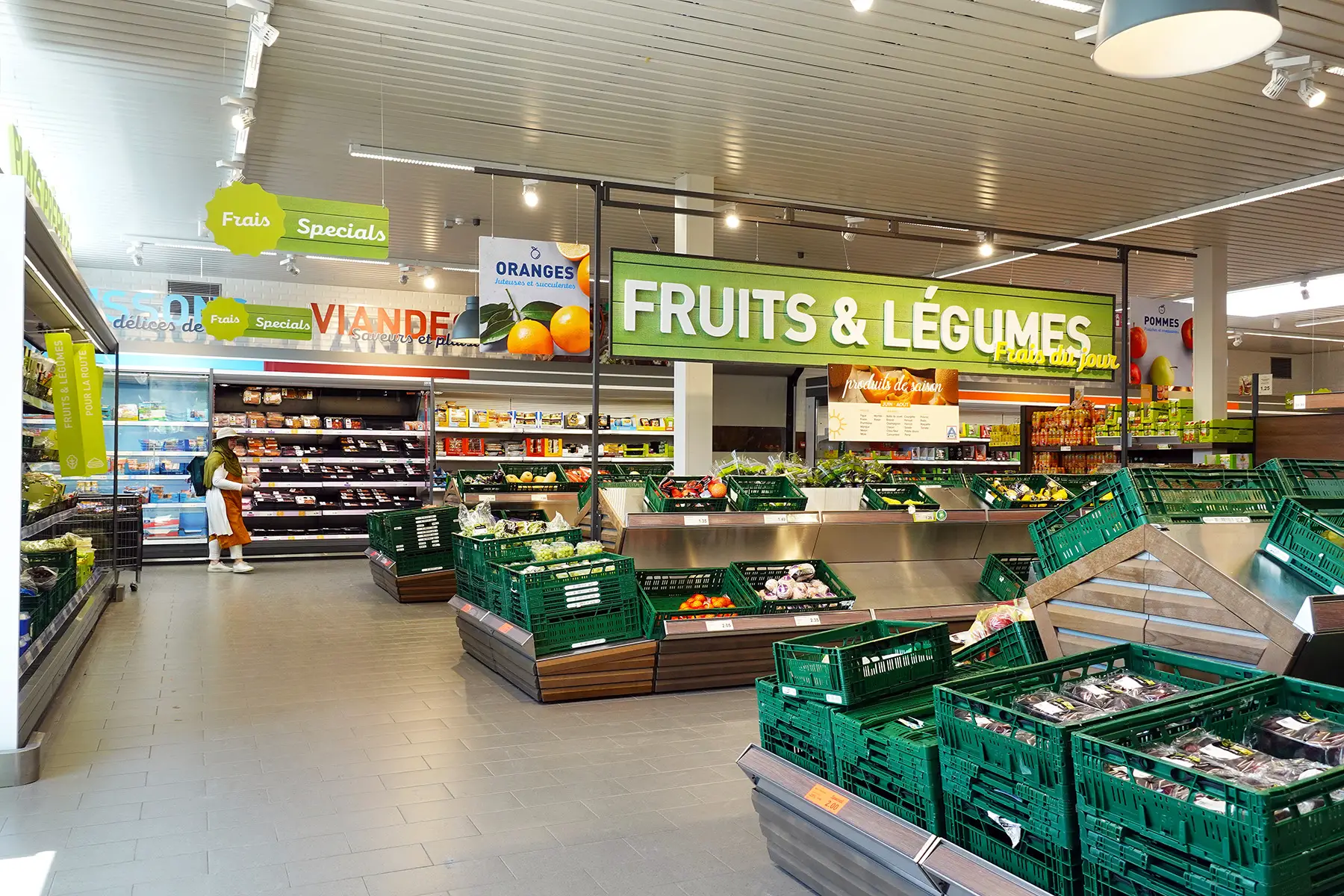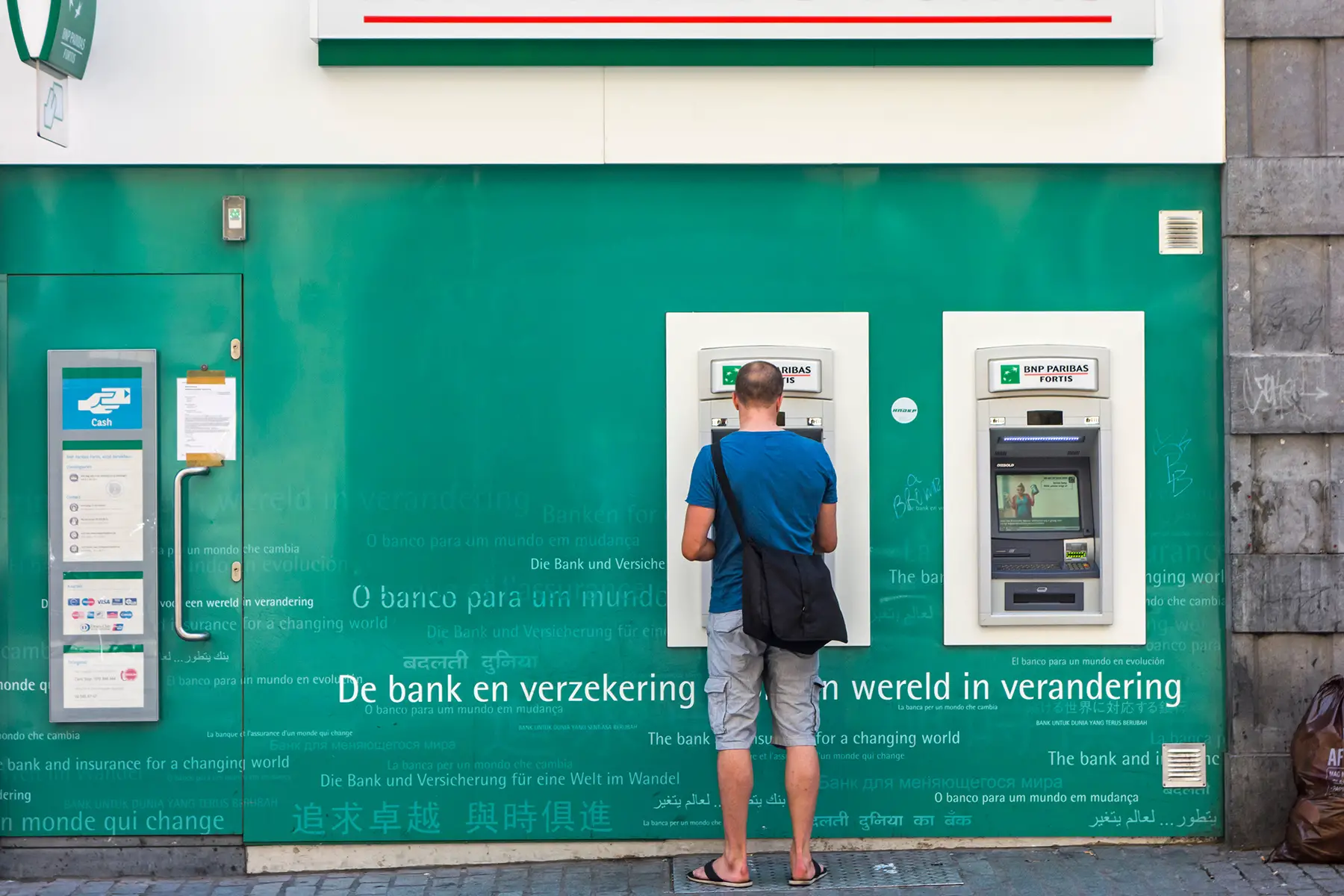When relocating to Belgium, one of the first things you’ll need to do in your new home is to connect the utilities. This includes getting connected to electricity, gas, and water. You may also want to connect to TV, home phone, and broadband in Belgium.
Thankfully, setting up your utilities in Belgium is fairly straightforward and there are plenty of providers, options, and packages to choose from. Whether you’re buying, renting, or letting in the short-term, this helpful guide provides information on the following:
Frank Energie
For affordable energy in Belgium, try Frank Energie. This energy company uses smart pricing and offers electricity and gas at market cost so you can save money at cheaper moments. Simply type in your address and find out how much you could save on your energy.
Utilities in Belgium
There’s plenty of choices when it comes to setting up your utilities in Belgium. The Belgian energy market is liberalized, letting you choose the right electricity and gas supplier for you depending on your needs and where you are in the country.
However, all this choice can be confusing, particularly for expats. Fortunately, most energy providers offer package deals that let you save money if you get your electricity and gas from one supplier. Many providers also offer green energy options, so you’ll be able to choose a more sustainable source of power for your home.
Water, on the other hand, is provided separately and you won’t be able to choose a supplier. Each Belgian region has its own water provider, so you’ll need to sign up with your local one. You can find them online or through your local council.
Getting connected in your new home
Whether you’re fresh off the boat or simply moving to a new home, setting up utilities is probably high up on your checklist of things to do before moving to Belgium.
If you are buying a new home in Belgium, it might be possible to get utility services transferred into your name from the previous owner or tenant. Some new homeowners will find this helpful as it takes away the need to find your own utility providers immediately after you move. These connections might not be the best or cheapest available but can tide you over until you have time to find your own providers.

If you’re renting, your new home may already have utilities set up by the landlord. If this is the case, the cost for these utilities will probably be included in your monthly payments. Your landlord should be able to issue you with information showing these costs should you need it. However, clarify ahead of time what you’re actually paying for before signing the contract. They may allow you to change providers or they may not. If utilities aren’t included in your rent, you’ll be able to transfer the current connections into your name or set up a different supplier.
If you choose to live in a serviced apartment in Belgium, generally speaking, it will come with utilities included as standard. Should you be planning a long-term rent, you’ll probably be able to find a cheaper deal yourself. However, changing providers may not be worth your while if you’re only staying short term.
Setting up electricity and gas in Belgium
Generally speaking, electricity is the most popular source of power in Belgian homes. However, gas is also an option in some homes in the country. You’ll soon find that there are plenty of energy providers to choose from, with most offering electricity and gas, should you want both.
Rates will vary between suppliers, and some will be able to offer a combined package with gas and district heating; although this is only available in certain areas. Others will offer more sustainable energy, from renewable sources including solar, wind, and water power.
Belgian energy suppliers
There are a number of energy suppliers in Belgium which offer a range of energy options, including gas, electricity, and renewable packages. However, be aware that while the larger providers operate nationwide, some only provide services in certain regions. Therefore, check which providers operate in your area before comparing prices.
Many homes in Belgium have their energy provided through Engie (formerly known as Electrabel) by default. However, there is a wide choice of energy providers available that includes the following:
Comparing Belgian energy providers
Selecting the best Belgian energy provider for you can be challenging. But one quick and easy way to ensure you find the right supplier is by using a comparison website. This will help you search by the type of energy you want (electricity, gas, or a mix), and the type of contract. You’ll also be able to easily see which providers offer green alternatives.
Connecting your energy supply in Belgium
Have you chosen your supplier and energy tariff? Then it’s time to get connected. Setting up an account with an energy company is generally straightforward; you can do usually this via telephone or the supplier’s website.
It’s likely you’ll need proof of identity (passport or ID card), proof of occupancy (rental contract or house deeds), and either a bank statement or proof of residence available from your municipality. However, each provider may have different requirements, so be prepared.
You’ll need a bank account to set up your preferred payment method. This will be easy to provide if you already have a bank account. However, if you don’t, you’ll need to sign up with a local bank. This can be done quickly and efficiently with a Belgian mobile bank, such as Hello Bank! Read our guide to mobile banking in Belgium for more information.
Whenever you move into a new property, it’s essential you make a note of the meter readings on your first day in your home. This will ensure you only pay for your usage. It can also help bring down the cost of your bills.
Your (new) provider will generally ask you to provide these readings once you have moved in. Should you fail to supply them, the energy company will make an estimate that could be higher than your actual usage. When you provide your readings, the energy supplier will check whether they’re realistic. If they think there is a mistake, they will contact you to double-check the readings. You’ll probably need to do this within 15 working days. Alternatively, the energy company may send out a technician to check these readings, particularly if the meter is inaccessible.
Paying your energy bills
When it comes to paying your energy bills, there are three main components. The first is for the amount of energy you have used. The second is for the use of the power network itself. These networks are operated at a regional level; you cannot choose a different network or opt-out of paying the associated charges. The third component is related to fees and taxes.
Most energy suppliers will combine these payments on your bill and you will pay one single sum per payment period. To pay utility bills in Belgium, you can make a bank transfer or set up automatic payments from your Belgian bank account.
Your energy supplier will ask you to check your meter readings once a year. When the time is right, you will get a reminder by post or email. This will be the basis for your monthly/annual costs for the next year and a possible refund or additional fee for the previous year. Alternatively, they may send a technician to your house to check for you.
Changing energy supplier in Belgium
Changing your energy supplier is straightforward in Belgium. If you do want to change providers, simply find the right tariff for you and contact the supplier. They will help you change over and many suppliers will let you switch on their website. Don’t worry about being left without power if you choose to switch providers as energy companies will keep you connected through the changeover.
You’ll need to record meter readings through the changing process to ensure you are paying the right amount. Alternatively, your provider may send a technician to take the meter reading. The process of changing providers should take around a month, although this can vary between suppliers.
Making a complaint about a Belgian energy company
Energy suppliers in Belgium are regulated by the national regulator CREG (Commission de Régulation de l’Electricité et du Gaz). Each region also has its own regulator, as follows:
- Brussels: BRUGEL (Brussels Gas Electricity)
- Flanders: VREG (Flemish Regulatory Body for the Electricity and Gas Market)
- Wallonia: CWApE (Commission Wallonne pour l’Energie).
Should you have a complaint about the meter readings or need to dispute your bill, contact your provider as soon as possible. This will give the provider ample time to sort out the issue. They may even send a technician to your home if needs be.
If you have a complaint to make about your energy provider or your initial complaint has not been resolved, you can get in touch with Belgium’s Energy Ombudsman. Through their website, you’ll be able to submit your complaint.
Belgian voltage and power plugs
The standard Belgian electricity voltage is 220V (50Hz). This is the standard voltage for Europe, but it is significantly higher than in many other countries. Therefore, make sure to check any appliances you bring from home beforehand to avoid any issues.
Belgium uses the two-pin power plug adapters that are used across much of Europe. If you have appliances with foreign plugs, such as the three-pin UK version, you will need to buy a power adaptor. You should be able to buy a suitable Belgian power adaptor in most electrical shops. Alternatively, stock up before you leave your home country.
Power cuts in Belgium
Power cuts are rare in Belgium but do occasionally happen. Should you experience one, you should first check if the street lights are working or if your neighbors have power. If the entire area is out, you can contact your regional power network operator.
However, it’s just your home without power, check your fuse box to see if a fuse has tripped or blown. You might be able to solve this yourself. Otherwise, you will need to contact your electricity supplier in Belgium.
Water supply in Belgium
Water in Belgium is of good quality and the water system is fairly easy to navigate for expats. Each region has it’s own water provider, so this can’t be selected by the consumer. The providers are as follows:
- Brussels: Vivaqua
- Flanders: De Watergroep
- Wallonia: SWDE (Société Wallonne des eaux)

Signing up with your local water supplier is fairly straightforward. As part of the process, you will likely need to fill in a form stating your meter reading on the day you move in. This form will likely also need to be signed by the previous owner (if buying) or the landlord (if renting). No one from the water company should need to visit your home unless there is a dispute over the readings.
Paying your water bill
Generally speaking, you’ll receive a water bill from your supplier once every quarter. This will be based on your consumption that quarter. Once a year, you’ll also receive a final invoice for the year. This will either ask you to pay extra or reimburse you if you’ve paid too much.
Belgian tap water
Tap water in Belgium is safe to drink and of good quality throughout the country. It is tested by water companies regularly to ensure its quality. Tap water in Belgium is generally quite hard. However, this does vary across the country and is slightly softer in the western parts. Should you want to soften your water, you can purchase a water filter.







